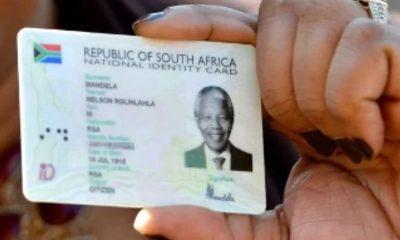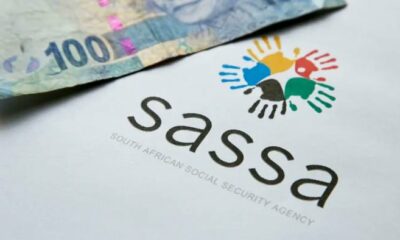Best of Johannesburg
Can Your Bank Deny You Service If You’re Not Online? Know Your Rights SA 2025

What South Africans Should Know About Offline Banking Rights Today
In a city like Joburg, where WhatsApp groups buzz and tap-to-pay is almost second nature, it’s easy to assume everyone’s gone digital. But for many South Africans, especially elders, informal traders, and grant recipients, digital banking isn’t the default. So what happens when your bank nudges, or pressures, you to “go online”? Can you actually be denied access to your own money for not downloading the app?
Here’s what the law says in 2025. Spoiler alert: You still have rights, and banks still have responsibilities.
The Bottom Line: You Can Still Bank Without a Phone
Under South African law, banks cannot legally deny you access to your account or money simply because you choose not to use digital banking. Whether you’re drawing funds from an ATM, speaking to a teller at your local branch, or checking balances via SMS or phone banking, you are entitled to service.
Your right to access a basic bank account is protected by the Consumer Protection Act, the Financial Sector Conduct Authority (FSCA), and the Code of Banking Practice, which is now more customer-friendly than ever. These frameworks ensure banks treat customers fairly, give clear communication, and do not discriminate based on digital preference.
If your bank does make changes, such as closing your local branch, they are required to give you reasonable notice so you can make alternative arrangements.
What Banks Are Allowed to Do (And What They Aren’t)
Banks do have a legal obligation to manage risk and comply with financial laws. That includes monitoring accounts for suspicious activity and ensuring customer information is up to date. If you fail to verify your identity under FICA regulations, or your account is involved in suspected illegal activity, the bank can temporarily restrict or even close your account. But even then, they must follow proper procedures, provide you with a reason where allowed, and give you the chance to respond.
They are also allowed to charge higher fees for in-person or over-the-counter (OTC) services. However, they must be upfront and transparent about these charges and ensure they are not exploitative.
What they cannot do is shut you out completely from essential banking services just because you are not using an app or internet banking.
Digital Banking Is Popular, but Not a Requirement
Banks are keen to digitise services. It’s cheaper, reduces paperwork, and speeds up transactions. The 2025 Banking Association South Africa (BASA) presentation to Parliament confirms that technology improves access to finance and enhances fraud detection. But importantly, banks must still maintain access to services through traditional means such as branches, ATMs, and telephone banking.
Even as more services go online, banks remain bound by their original contract with you. If your contract or account agreement includes non-digital options, they must continue to provide them or offer a reasonable equivalent.
South Africa’s financial regulators make it clear: digitisation should expand access, not limit it.
How to Respond If You’re Pressured to Go Digital
If your bank insists that you shift to digital-only services or restricts access unfairly, here’s what you can do:
1. Request a basic account:
Ask about account options that do not penalise you for OTC transactions. Banks are required to offer basic bank accounts at affordable fees.
2. Get clarity on fees and terms:
Make sure you understand which services cost more and why. Banks must be transparent about their charges.
3. Complain through the right channels:
Start with your bank’s internal complaints process. If that fails, escalate to the National Financial Ombud Scheme, the FSCA, or the National Consumer Commission. They exist to protect you from unfair treatment.
4. Know your documentation rights:
If access was blocked due to FICA requirements, you can provide updated documents in person. Banks cannot insist that FICA verification be done digitally only.
A Brief Throwback: What Mzansi Taught Us
Back in the early 2000s, the Mzansi Account revolutionised banking access. Designed to serve the unbanked, it had no monthly fees and used shared ATM infrastructure. Millions of South Africans gained entry into formal banking for the first time. That model proved that low-tech, affordable, offline banking could be effective and inclusive.
Today, more than 40 million South Africans have bank accounts, but many still use them for cash withdrawals only. We’re a society where cash, queues, and community still matter, and the law recognises that.
What Joburgers Are Saying
On X (formerly Twitter), users express growing concern about digital exclusion. One user wrote, “Not everyone has a smartphone. Banking must be for all, not just the connected.” In community groups, especially among pensioners and small business owners, people say they prefer face-to-face banking for its human touch.
There’s a quiet but growing resistance to being nudged into a world where digital is the only option.
2025 and Beyond: Know Before You Sign
As fintech continues to reshape the banking landscape in South Africa, with biometric logins and AI-driven services becoming more common, it’s more important than ever to understand what you are signing up for. Read the small print, ask questions, and keep physical copies of your agreements if you prefer them that way.
Your choice to go digital, or not, is yours. And your access to your money should never hang in the balance because of that decision.
Also read: Future Proof Your Budget: How Tariffs and Taxes Are Shaping Daily Costs in South Africa, 2025
Follow Joburg ETC on Facebook, Twitter, TikT
For more News in Johannesburg, visit joburgetc.com
Featured Image: Jackson, Etti & Edu


























